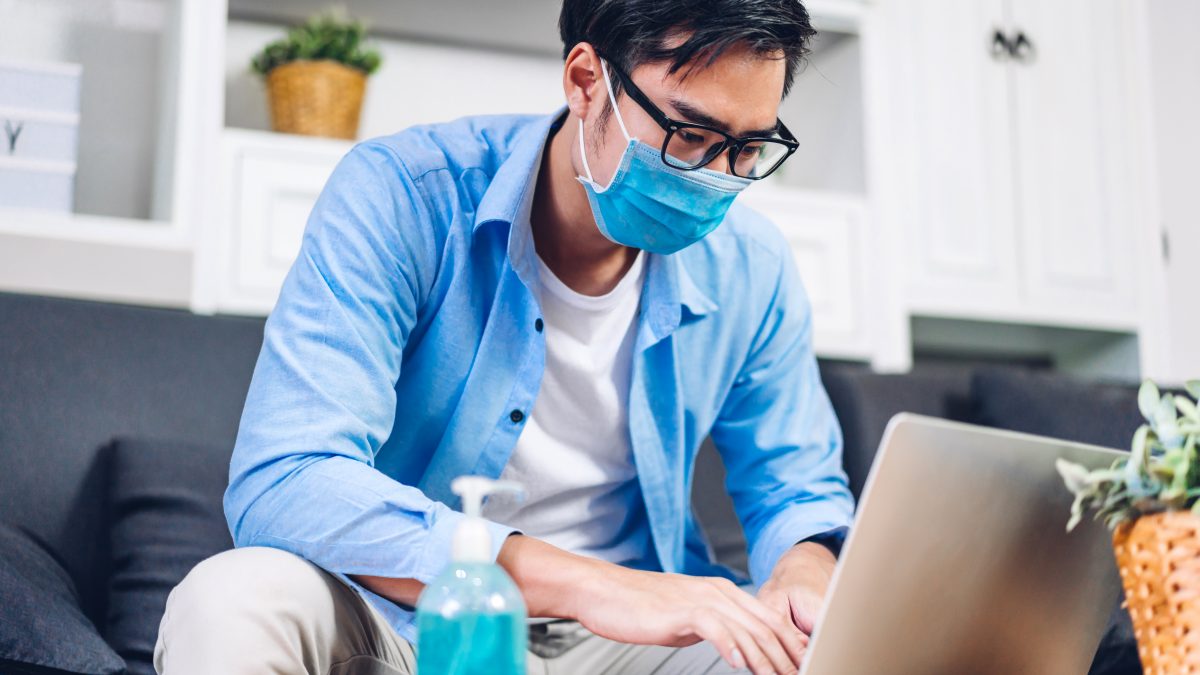Sweeping changes in how people used technology were one of the side effects of the Covid-19 pandemic, and a new Brandon University research project wants to capture your memories of those changes.
“We’re gathering a base of information about this time period, where some changes have already come and gone, like the practice some people had of washing and sanitizing groceries,” said Sydney Houlihan, a student researcher who is working on the project. “This will be valuable for future historians, especially perhaps when people look at children growing up through these changes, and how that might have affected them.”
The research is taking a broad look at “technology” and are interested in more than work-from-home or Zoom cocktail hours. Anything old or new, from plexiglass shields and homemade masks to air purifiers and sourdough baking, is of interest.
“It’s really about our relationship to the technology, and how the experience of the pandemic — with all its unknowns, swift social transformations, and new expectations — upended those relationships,” said Dr. Rhonda Hinther, a BU history professor who is leading the research project. “The strength of collecting these as oral history means we can capture experiences that won’t be documented in other ways. It’s somewhat retrospective, but still relatively recent.”
Over the summer, the project hopes to connect with about 20 people to conduct a deep and wide-ranging interview about their changing relationship with technology through the pandemic. These oral history interviews will take about an hour each, and the recordings will be deposited into the S.J McKee Archives at Brandon University for future research access.
“Everyone all of a sudden had to upend their lives, and this was a tremendous adjustment,” Hinther said. “How did we need to change, to innovate, to adapt… in our home lives, our social lives, and in the workplace? All of these are of real interest to historians now, and may even help us prepare for future outbreaks or other crises.”
Hinther and Houlihan hope to capture a wide range of perspectives in their oral histories, from the healthcare, retail, and restaurant workers who had to juggle risk on the front line, to the students, patients, and clients who were at the mercy of others’ policies, to the decision-makers in government and industry whose judgement calls affected hundreds, thousands, or even millions of people.
“Even in hindsight, there’s sometimes no right answer, and this project isn’t about finding fault or assigning blame,” Houlihan said. “What’s critical is to capture the full experience as authentically as possible.”
If you’re interested in contributing your story — all Manitobans over 18 are eligible — you can email the project at shareyourexperience19@gmail.com or call Dr. Hinther at 204-728-9520.
Contact
- Dr. Rhonda Hinther
- History
- HintherR@BrandonU.ca
- 204.728.9520
To receive any BU publication in an alternate format please contact Communications@BrandonU.ca
About BU
Success is built at Brandon University. Our growing, progressive campus welcomes a diverse and inclusive community that combines proud tradition with shared ambition. Through our excellence in teaching, research, and scholarship, we educate students to make a meaningful difference as engaged citizens and leaders. Join us at BrandonU.ca.
